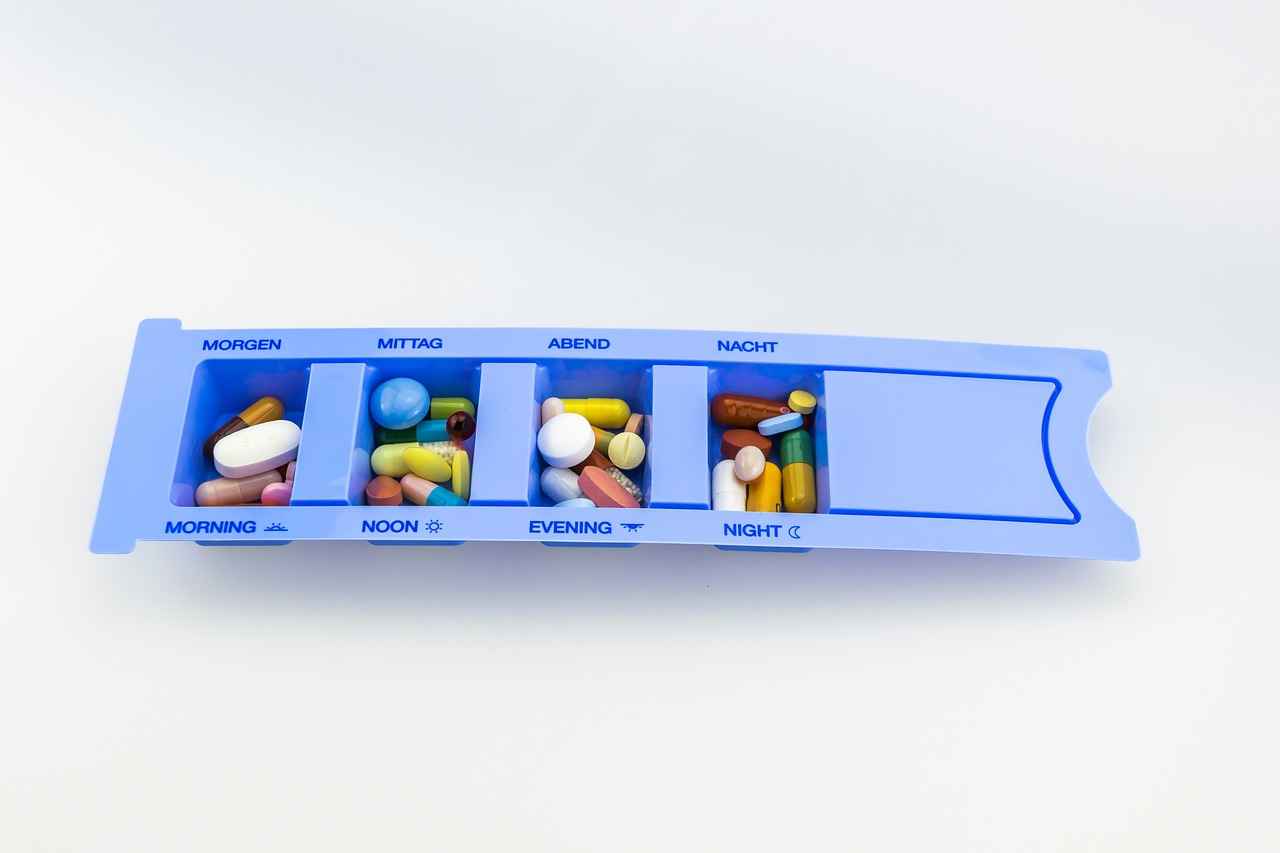This article delves into the numerous advantages of creatine supplementation for athletes, highlighting its effects on performance, muscle growth, and recovery. Backed by scientific research and expert opinions, we aim to provide a comprehensive understanding of this popular supplement.
What is Creatine?
Creatine is a naturally occurring compound primarily found in muscle cells. It plays a significant role in energy production during high-intensity exercise. For athletes seeking to enhance their performance, understanding how creatine functions is crucial.
How Does Creatine Work?
Creatine works by replenishing levels of ATP (adenosine triphosphate), the primary energy carrier in cells. This process improves strength, power, and overall athletic performance during short bursts of intense activity, making it especially beneficial for athletes engaged in sports that require quick, explosive movements.
The Science Behind Creatine
Research demonstrates that creatine supplementation increases phosphocreatine stores in muscles, enabling faster ATP regeneration. This mechanism is vital for athletes involved in high-intensity sports and resistance training, as it allows for enhanced performance and endurance.
Benefits of Creatine for Athletes
- Increased muscle mass
- Enhanced strength
- Improved recovery times
- Better performance in high-intensity sports
These benefits make creatine a staple supplement for many athletes striving for peak performance.
Creatine and Muscle Growth
Creatine supplementation has been linked to increased muscle hypertrophy through enhanced training capacity and improved recovery, allowing athletes to train harder and achieve greater gains in muscle size and strength.
Impact on Recovery
Creatine may help reduce muscle cell damage and inflammation following intense exercise, facilitating quicker recovery and enabling athletes to train more frequently without the risk of overtraining.
Potential Side Effects
While generally safe, some users may experience gastrointestinal discomfort, water retention, or muscle cramping. Understanding these potential side effects is important for athletes considering creatine supplementation.
Is Creatine Safe for Long-Term Use?
Numerous studies indicate that creatine is safe for long-term use in healthy individuals. However, it is advisable to consult with a healthcare professional before starting any supplementation regimen for personalized guidance.
Conclusion: The Role of Creatine in Athletic Performance
In conclusion, creatine is a powerful tool for athletes seeking to enhance their performance, recover more effectively, and build muscle. By understanding its benefits and proper usage, athletes can achieve significant improvements in their athletic endeavors.

What is Creatine?
Understanding Creatine: A Key to Athletic Performance
Creatine is a naturally occurring compound predominantly found in muscle cells, where it plays an essential role in energy production, especially during high-intensity exercise. For athletes and fitness enthusiasts, comprehending the function and benefits of creatine is vital for optimizing performance and achieving fitness goals.
Creatine is synthesized in the body from amino acids, primarily in the liver, kidneys, and pancreas. It is stored in the muscles as phosphocreatine, which serves as a readily available energy source during short bursts of intense physical activity, such as sprinting or weightlifting. The more creatine present in the muscles, the greater the potential for energy production, leading to improved strength and power.
How Does Creatine Work?
When engaging in high-intensity exercise, the body relies on ATP (adenosine triphosphate) for energy. Creatine enhances the replenishment of ATP, allowing athletes to maintain peak performance for longer durations. This results in increased strength, enhanced endurance, and improved overall athletic performance.
The Science Behind Creatine
Numerous studies have demonstrated that creatine supplementation can significantly increase phosphocreatine stores in muscles, which in turn accelerates ATP regeneration. This mechanism is particularly beneficial for athletes involved in sports that require quick bursts of energy, such as football, basketball, and sprinting.
Benefits of Creatine for Athletes
- Increased Muscle Mass: Creatine promotes muscle hypertrophy by allowing athletes to train harder and recover faster.
- Enhanced Strength: Regular creatine supplementation can lead to substantial improvements in strength levels.
- Improved Recovery: Creatine may help reduce muscle cell damage and inflammation, facilitating quicker recovery times.
Conclusion
In summary, creatine is a powerful supplement that can provide numerous benefits for athletes seeking to enhance their performance, build muscle, and recover more effectively. By understanding its role and proper usage, athletes can leverage creatine to achieve their fitness aspirations.

How Does Creatine Work?
Creatine plays a pivotal role in enhancing athletic performance by acting as a crucial energy source during high-intensity activities. When athletes engage in strenuous exercise, their muscles require immediate energy, which is primarily supplied by adenosine triphosphate (ATP). However, the supply of ATP in muscle cells is limited and can be quickly depleted during intense physical exertion.
By supplementing with creatine, individuals can significantly increase the levels of phosphocreatine in their muscles. This compound serves as a reserve to regenerate ATP, allowing for sustained energy production. The process can be summarized as follows:
- ATP Depletion: During intense exercise, ATP is broken down to release energy, leading to a decrease in ATP levels.
- Phosphocreatine Reserves: Creatine supplementation elevates phosphocreatine levels, which can quickly donate a phosphate group to ADP (adenosine diphosphate) to regenerate ATP.
- Enhanced Performance: With more ATP available, athletes can perform at higher intensities for longer durations, improving overall strength and power output.
Research has consistently shown that creatine supplementation can lead to improved performance in activities that require short bursts of energy, such as sprinting, weightlifting, and high-intensity interval training. A meta-analysis of numerous studies indicates that creatine users often experience increased strength gains and muscle mass compared to non-users.
Moreover, creatine also has beneficial effects on recovery. By facilitating quicker ATP regeneration, it helps reduce muscle fatigue and soreness, allowing athletes to train more frequently and effectively. This dual action—enhancing performance during activity and aiding recovery post-exercise—makes creatine a valuable supplement for those looking to optimize their athletic capabilities.
In conclusion, the mechanism by which creatine works centers around its ability to replenish ATP levels, thereby enhancing strength, power, and overall athletic performance. Whether you’re a seasoned athlete or a fitness enthusiast, understanding how creatine functions can help you make informed decisions about its use in your training regimen.
The Science Behind Creatine
Creatine is a compound that plays a crucial role in energy production within the body, particularly during high-intensity physical activities. Research indicates that creatine supplementation significantly increases phosphocreatine stores in muscle cells. This increase is vital for athletes, as it enhances the ability to regenerate ATP (adenosine triphosphate) quickly, which is the primary energy carrier in our cells.
During short bursts of intense exercise, such as sprinting or weightlifting, the demand for ATP rises sharply. Creatine supplementation allows for a more rapid replenishment of ATP, enabling athletes to maintain peak performance levels for longer durations. This mechanism is especially beneficial for those involved in sports that require quick, explosive movements.
How Does Creatine Benefit Athletes?
- Enhanced Strength: With increased ATP availability, athletes can lift heavier weights and perform more repetitions, leading to greater strength gains.
- Improved Recovery: Creatine may help reduce muscle cell damage and inflammation, facilitating quicker recovery between training sessions.
- Increased Muscle Mass: By promoting higher training capacity, creatine supports muscle hypertrophy, resulting in increased muscle size over time.
Scientific Studies
Numerous studies have validated the effectiveness of creatine supplementation. For instance, a meta-analysis of multiple studies found that individuals who supplemented with creatine experienced significantly greater improvements in strength and muscle mass compared to those who did not.
Conclusion
In summary, creatine supplementation offers a scientifically backed method for enhancing athletic performance. By increasing phosphocreatine stores, athletes can enjoy faster ATP regeneration, leading to improved strength, recovery, and muscle growth. For those engaged in high-intensity sports, creatine remains a vital supplement in their training regimen.
Types of Creatine
When it comes to creatine supplementation, there are several types available, each with its own unique properties and benefits. Understanding these variations can help athletes make informed choices about which form of creatine best suits their needs.
- Creatine Monohydrate: This is the most widely studied and commonly used form of creatine. It has been shown to effectively increase muscle mass, strength, and exercise performance. Due to its extensive research backing, it is often considered the gold standard in creatine supplementation.
- Creatine Ethyl Ester: Known for its enhanced absorption rate, creatine ethyl ester is often marketed as a superior alternative to monohydrate. However, research on its effectiveness is limited compared to creatine monohydrate.
- Buffered Creatine: This form is designed to minimize the breakdown of creatine in the stomach, potentially leading to better absorption and fewer side effects. Some users report less gastrointestinal discomfort with buffered creatine.
- Creatine Hydrochloride: Creatine HCl is praised for its solubility and absorption. It is often recommended for those who experience bloating or discomfort with other forms of creatine.
- Micronized Creatine: This type features smaller particles, which may enhance absorption and reduce gastrointestinal issues. It offers the same benefits as creatine monohydrate but with improved solubility.
While all these forms of creatine have their advantages, creatine monohydrate remains the most researched and effective option for most athletes. Its proven benefits and safety profile make it a reliable choice for enhancing athletic performance.
In conclusion, understanding the various types of creatine can help athletes select the most suitable option for their training goals. Whether it’s for increased strength, muscle growth, or improved recovery, choosing the right form of creatine is essential for achieving optimal results.
Recommended Dosages
for Creatine Supplementation
When considering the use of creatine as a supplement to enhance athletic performance, understanding the proper dosage is essential for maximizing its benefits. The typical loading phase is designed to quickly saturate muscle stores, allowing athletes to experience the full effects of creatine in a shorter timeframe.
| Phase | Dosage | Duration |
|---|---|---|
| Loading Phase | 20 grams daily | 5-7 days |
| Maintenance Phase | 3-5 grams daily | Ongoing |
The loading phase consists of taking approximately 20 grams of creatine per day, split into multiple doses throughout the day. This approach helps to rapidly increase the levels of phosphocreatine in the muscles, which is crucial for replenishing ATP (adenosine triphosphate) during high-intensity activities. Following this initial phase, athletes typically transition to a maintenance dose of 3-5 grams daily. This lower dosage helps to maintain the elevated creatine levels achieved during the loading phase.
It is important to note that while some athletes may choose to skip the loading phase and directly start with the maintenance dose, this method may take longer to achieve optimal muscle saturation. Moreover, hydration is critical during creatine supplementation, as it can cause water retention in the muscles.
In summary, adhering to the recommended dosages of creatine can significantly enhance athletic performance, muscle growth, and recovery. However, as with any supplement, it is advisable to consult with a healthcare professional before starting to ensure it aligns with individual health needs and goals.
Benefits of Creatine for Athletes
Creatine is widely recognized in the athletic community for its remarkable benefits, particularly for athletes engaged in high-intensity sports. This naturally occurring compound, found in muscle cells, plays a pivotal role in enhancing athletic performance and overall fitness. Below, we explore the various advantages of creatine supplementation, supported by scientific research and expert opinions.
- Increased Muscle Mass: Creatine supplementation has been shown to promote muscle hypertrophy by increasing water content in muscle cells and enhancing protein synthesis. This leads to noticeable gains in muscle size, which is particularly beneficial for athletes looking to improve their strength and power.
- Enhanced Strength: Numerous studies indicate that creatine can significantly improve strength levels. By replenishing ATP (adenosine triphosphate) stores, creatine enables athletes to perform more repetitions and lift heavier weights during training sessions.
- Improved Recovery Times: Creatine may aid in reducing muscle cell damage and inflammation post-exercise. This accelerated recovery allows athletes to train more frequently and intensely, leading to better performance outcomes.
- Better Performance in High-Intensity Sports: For athletes participating in sports that require quick bursts of energy, such as sprinting or weightlifting, creatine supplementation can enhance performance. It allows for greater power output during short, intense activities, which is crucial for competitive success.
In summary, the benefits of creatine are vast and well-documented, making it a staple supplement for many athletes. By increasing muscle mass, enhancing strength, improving recovery times, and boosting performance in high-intensity sports, creatine serves as a powerful ally in the quest for athletic excellence. As with any supplement, athletes should consult with healthcare professionals to ensure safe and effective use tailored to their individual needs.

Creatine and Muscle Growth
Creatine supplementation is widely recognized for its significant role in promoting muscle growth, particularly through its ability to enhance training capacity and facilitate effective recovery. This article delves into how creatine contributes to muscle hypertrophy, enabling athletes to maximize their performance and achieve substantial gains in both muscle size and strength.
Understanding Muscle Hypertrophy
Muscle hypertrophy refers to the increase in muscle fiber size, which is crucial for athletes looking to improve their overall strength and physical appearance. When creatine is supplemented, it increases the availability of phosphocreatine in the muscles, which plays a vital role in the rapid regeneration of ATP (adenosine triphosphate). This process is essential during high-intensity workouts, allowing athletes to perform more repetitions and lift heavier weights.
Enhanced Training Capacity
- With creatine, athletes can experience improved performance in strength training and high-intensity exercises.
- The increased energy availability allows for longer and more effective training sessions, leading to greater muscle stress and subsequent growth.
Improved Recovery
In addition to enhancing performance during workouts, creatine also aids in the recovery process. Studies have shown that creatine supplementation can reduce muscle cell damage and inflammation following intense exercise. This means athletes can recover faster and train more frequently, which is crucial for continuous improvement in muscle growth.
Scientific Evidence
Research supports the claim that creatine supplementation leads to significant increases in muscle mass and strength. A meta-analysis of numerous studies found that individuals who supplemented with creatine experienced greater gains in lean body mass compared to those who did not. This evidence reinforces the effectiveness of creatine as a powerful ally in the pursuit of muscle hypertrophy.
Conclusion
In summary, creatine is a potent supplement that can significantly enhance muscle growth through improved training capacity and recovery. By allowing athletes to train harder and more frequently, creatine supplementation can lead to remarkable increases in muscle size and strength, making it an essential component of any serious athlete’s regimen.
Impact on Recovery
In the realm of sports and fitness, recovery is a critical component that can significantly influence an athlete’s performance. Creatine, a popular dietary supplement, has garnered attention for its potential to enhance recovery processes after intense physical activity. This section will delve into how creatine aids in reducing muscle cell damage and inflammation, facilitating quicker recovery times for athletes.
After engaging in strenuous exercise, muscle cells often experience micro-tears, leading to inflammation and soreness. Creatine supplementation has been shown to help mitigate these effects. By increasing the availability of phosphocreatine in muscle cells, creatine enhances the regeneration of ATP (adenosine triphosphate), the primary energy currency of the cell. This rapid replenishment of energy sources can help in reducing the extent of muscle cell damage.
Furthermore, research indicates that creatine may play a role in decreasing markers of inflammation following intense workouts. Lower inflammation levels can lead to a reduction in delayed onset muscle soreness (DOMS), enabling athletes to return to training sooner. This aspect is particularly beneficial for those involved in high-frequency training regimens, as it allows for more consistent performance without the risk of overtraining.
Moreover, studies suggest that athletes who incorporate creatine into their supplementation routine often report improved recovery times, allowing them to engage in training sessions with less downtime. This enhanced recovery capacity not only aids in maintaining training intensity but also contributes to overall athletic performance improvements.
In conclusion, the impact of creatine on recovery is significant. By reducing muscle cell damage and inflammation, it facilitates quicker recovery, enabling athletes to train more frequently and effectively. As a result, creatine stands out as a valuable supplement for those looking to optimize their training and performance.
Potential Side Effects
While creatine supplementation is generally considered safe for most athletes, it is crucial to be aware of some that may arise. Understanding these effects can help users make informed decisions about their supplementation regimen.
- Gastrointestinal Discomfort: Some individuals may experience symptoms such as bloating, diarrhea, or stomach cramps. These issues are often linked to the dosage taken, particularly during the loading phase.
- Water Retention: Creatine can cause the muscles to retain water, leading to a temporary increase in body weight. While this can enhance muscle fullness, it may also cause discomfort for some users.
- Muscle Cramping: Although not universally experienced, some athletes report muscle cramping when using creatine. Staying well-hydrated can help mitigate this risk.
It’s important to note that these side effects are typically mild and can often be managed by adjusting the dosage or ensuring adequate hydration. Athletes should consider starting with a lower dose and gradually increasing it to assess tolerance.
Before beginning any supplementation, including creatine, it is advisable to consult with a healthcare professional. This step ensures personalized guidance based on individual health conditions and athletic goals.
In summary, while creatine offers significant benefits for athletic performance, being aware of its potential side effects is essential for safe and effective use. By understanding these factors, athletes can maximize their training outcomes while minimizing any discomfort.

Is Creatine Safe for Long-Term Use?
When it comes to creatine supplementation, a common concern among athletes and fitness enthusiasts is its long-term safety. Numerous scientific studies have indicated that creatine is generally safe for long-term use in healthy individuals. This conclusion is supported by extensive research, which has monitored the effects of creatine over extended periods.
Creatine is a naturally occurring substance in the body, primarily found in muscle cells. It plays a vital role in energy production, particularly during high-intensity activities. While many individuals consider creatine as a performance enhancer, understanding its safety profile is crucial for informed decision-making.
According to research published in reputable journals, long-term creatine use does not appear to cause significant adverse effects in healthy adults. Most studies report minimal side effects, primarily related to gastrointestinal discomfort or water retention. However, these effects are typically mild and can often be mitigated by adjusting the dosage or method of intake.
For athletes, the benefits of creatine supplementation often outweigh potential risks. It enhances strength, muscle mass, and recovery times, making it a popular choice among those engaged in rigorous training. Nevertheless, it is essential to approach supplementation responsibly.
Before embarking on a creatine regimen, it is advisable to consult with a healthcare professional or a registered dietitian. They can provide personalized guidance based on individual health status and fitness goals. This step is particularly important for individuals with pre-existing health conditions or those taking medications.
In conclusion, while numerous studies affirm the safety of creatine for long-term use in healthy individuals, it is always prudent to seek professional advice. This ensures that supplementation aligns with personal health needs and fitness objectives.

Conclusion: The Role of Creatine in Athletic Performance
Creatine is widely recognized as one of the most effective supplements available for athletes aiming to enhance their performance. This naturally occurring compound plays a pivotal role in energy production, particularly during high-intensity activities. Its benefits extend beyond mere performance enhancement; it also aids in muscle recovery and growth, making it a vital addition to any athlete’s regimen.
By increasing the levels of phosphocreatine in the muscles, creatine facilitates faster regeneration of ATP (adenosine triphosphate), which is essential for energy during short bursts of exercise. This mechanism allows athletes to push harder and train more effectively, leading to improved strength and power outputs. As a result, many athletes report significant gains in muscle mass and overall athletic performance.
| Benefits of Creatine | Details |
|---|---|
| Increased Muscle Mass | Promotes hypertrophy through enhanced training capacity. |
| Improved Recovery | Reduces muscle cell damage and inflammation post-exercise. |
| Enhanced Performance | Boosts strength and power for high-intensity sports. |
While creatine is generally considered safe for long-term use, it is important for athletes to consult with healthcare professionals before starting any supplementation. This ensures personalized guidance and helps to mitigate any potential side effects, such as gastrointestinal discomfort or water retention.
In conclusion, understanding the benefits and proper usage of creatine can lead to significant improvements in athletic performance. By incorporating creatine into a well-structured training program, athletes can unlock their full potential and achieve their performance goals.
















